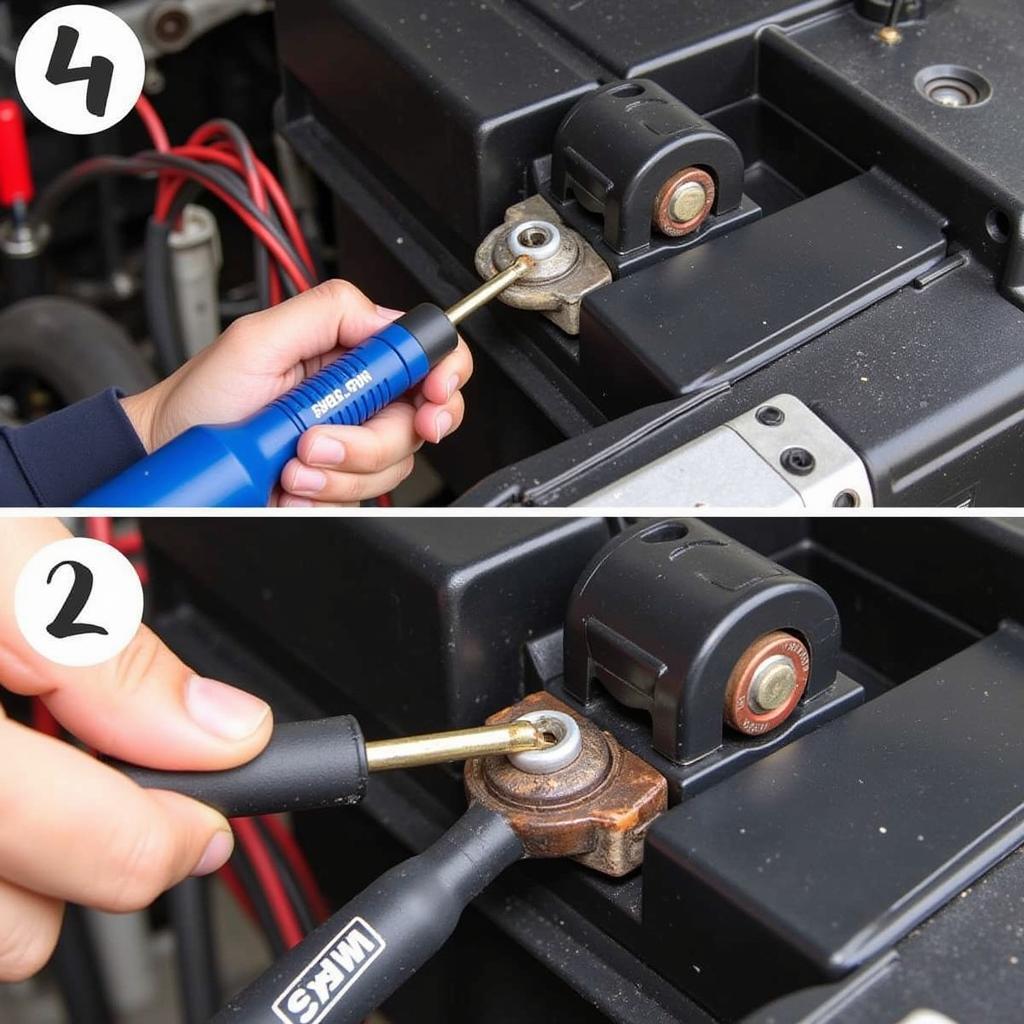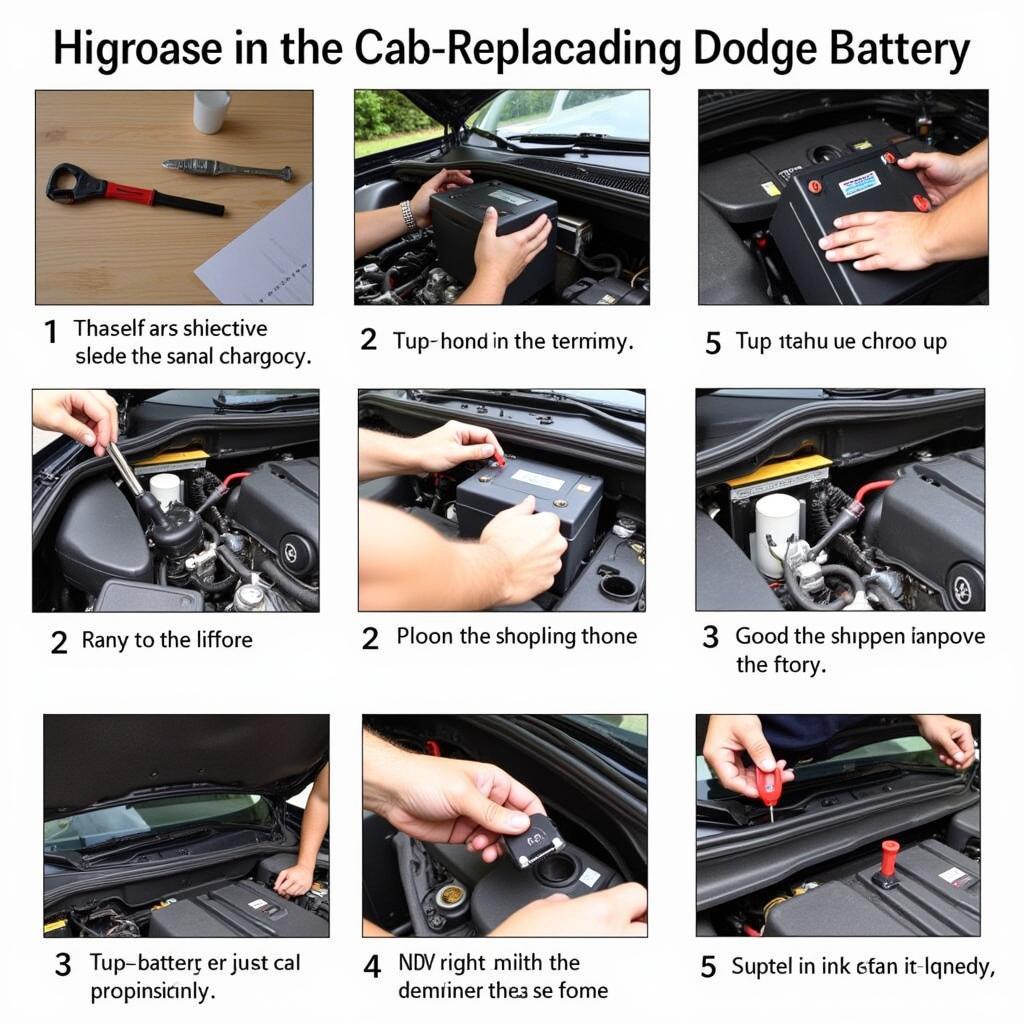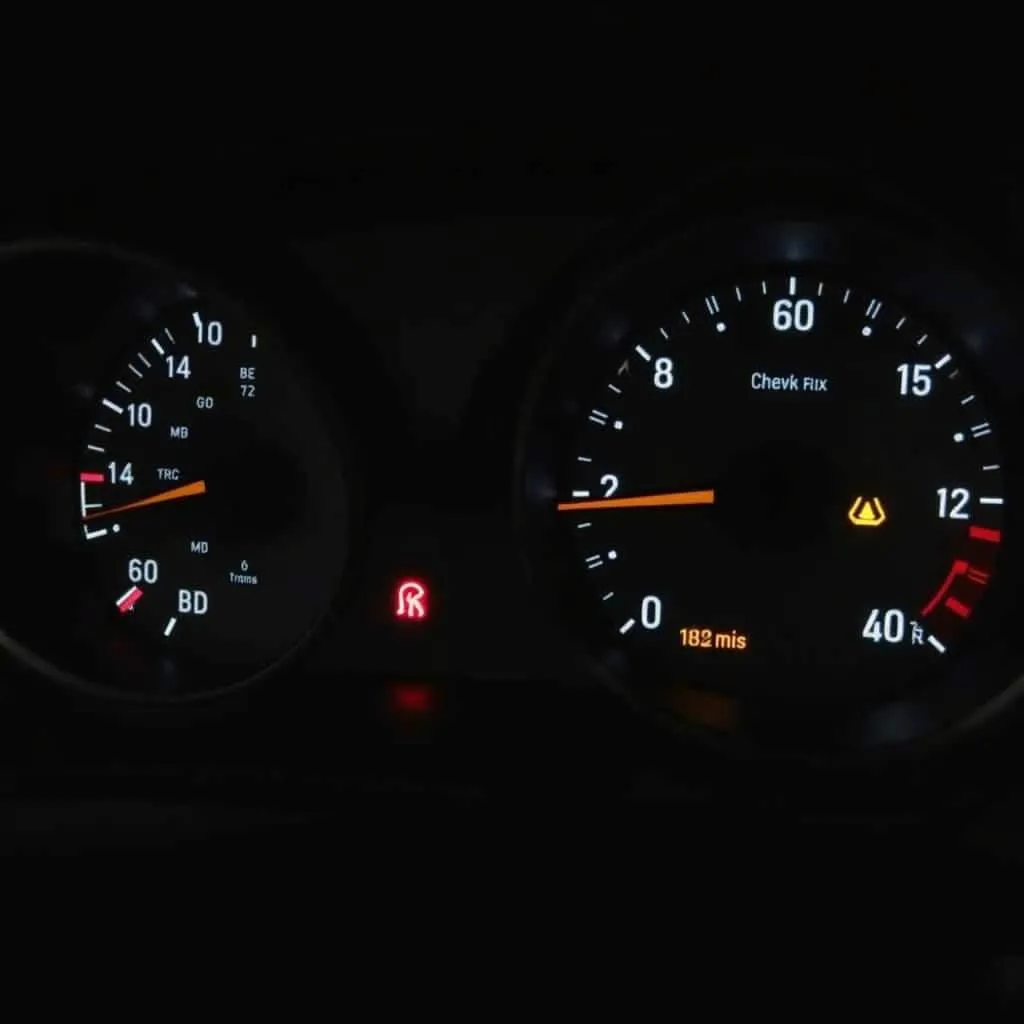A dead battery in your Dodge Charger can be a frustrating experience. This article provides a comprehensive guide to diagnosing, troubleshooting, and resolving the issue, whether you’re a DIY enthusiast or prefer professional assistance.
One common reason for a dead battery is simply leaving lights on or accessories running. However, the problem might stem from a more complex issue like a faulty alternator, parasitic drain, or even extreme temperatures. Identifying the root cause is crucial for a long-term solution.
Identifying the Culprit: Why is Your Dodge Charger Battery Dead?
There are several potential reasons why your Dodge Charger’s battery might be giving up the ghost.
- Age: Batteries have a limited lifespan, typically 3-5 years. Over time, their ability to hold a charge diminishes.
- Corrosion: Battery terminals can corrode, hindering the flow of electricity.
- Parasitic Drain: Even when your car is off, certain systems can draw power, slowly draining the battery.
- Faulty Alternator: The alternator recharges the battery while the engine is running. A failing alternator won’t charge the battery effectively.
- Extreme Temperatures: Both extreme heat and cold can negatively impact battery performance.
 Checking Battery Terminals for Corrosion on a Dodge Charger
Checking Battery Terminals for Corrosion on a Dodge Charger
Jump-Starting Your Dodge Charger: A Quick Fix
Jump-starting is often the first step when faced with a dead battery. Follow these steps:
- Locate another vehicle with a working battery.
- Connect the positive (red) clamp to the positive terminal of the dead battery.
- Connect the other positive (red) clamp to the positive terminal of the working battery.
- Connect the negative (black) clamp to the negative terminal of the working battery.
- Connect the other negative (black) clamp to a clean, unpainted metal surface on the dead car’s engine block.
- Start the vehicle with the working battery.
- Let it run for a few minutes, then attempt to start your Dodge Charger.
- Once started, carefully disconnect the cables in reverse order.
Beyond Jump-Starting: Long-Term Solutions for a Dodge Charger Dead Battery
If jump-starting resolves the issue temporarily, it indicates a deeper problem requiring further investigation.
Checking the Alternator: Ensuring Proper Charging
how to bluetooth iphone to car radio
A faulty alternator can prevent the battery from recharging. You can test the alternator’s output using a multimeter. If the voltage reading is below a certain threshold, the alternator likely needs replacement.
Diagnosing a Parasitic Drain: The Silent Battery Killer
A parasitic drain can be tricky to identify. Using a multimeter, you can measure the current draw with the car off to pinpoint any excessive drain. This might involve checking fuses and relays systematically to isolate the culprit.
Addressing Corrosion: Cleaning Battery Terminals
Corrosion on the battery terminals can disrupt the electrical connection. Cleaning the terminals with a wire brush or a baking soda and water solution can often restore proper contact.
Preventative Measures: Keeping Your Dodge Charger Battery Healthy
Taking proactive steps can help avoid a dead battery situation in the future.
- Regularly inspect the battery terminals for corrosion.
- Ensure all lights and accessories are turned off before leaving the car.
- Have your battery tested periodically, especially as it approaches the end of its lifespan.
- In extreme temperatures, consider using a battery tender to maintain optimal charge.
 Replacing a Dodge Charger Battery
Replacing a Dodge Charger Battery
“Regular battery maintenance, just like regular oil changes, can save you a lot of headaches down the road,” advises John Smith, a certified automotive technician with over 20 years of experience.
Conclusion: Dodge Charger Dead Battery No More!
A dead battery in your Dodge Charger can be inconvenient, but understanding the potential causes and solutions can empower you to address the issue effectively. Whether it’s a simple jump-start, cleaning corroded terminals, or addressing a more complex issue like a faulty alternator, this guide provides the information you need to get back on the road. Regular maintenance and proactive checks can prevent future dead battery situations and keep your Dodge Charger running smoothly. Remember to test your alternator and check for parasitic drain if the problem persists.
FAQ
-
How long does a Dodge Charger battery last?
Typically, a car battery lasts 3-5 years. -
Can a dead battery damage a Dodge Charger?
While a dead battery itself won’t cause direct damage, repeated jump-starting can strain the electrical system. -
How much does a new Dodge Charger battery cost?
The price varies depending on the type and brand, but expect to pay between $100 and $300. -
Can I drive my Dodge Charger with a bad alternator?
You can drive for a short distance, but the battery will eventually drain completely. -
How do I know if my Dodge Charger has a parasitic drain?
A multimeter can measure current draw with the car off, helping to identify a parasitic drain. -
What are the signs of a dying battery in a Dodge Charger?
Dim headlights, slow engine cranking, and clicking sounds when starting are common indicators. -
Can extreme temperatures affect my Dodge Charger’s battery?
Yes, both extreme heat and cold can reduce battery performance and lifespan.

